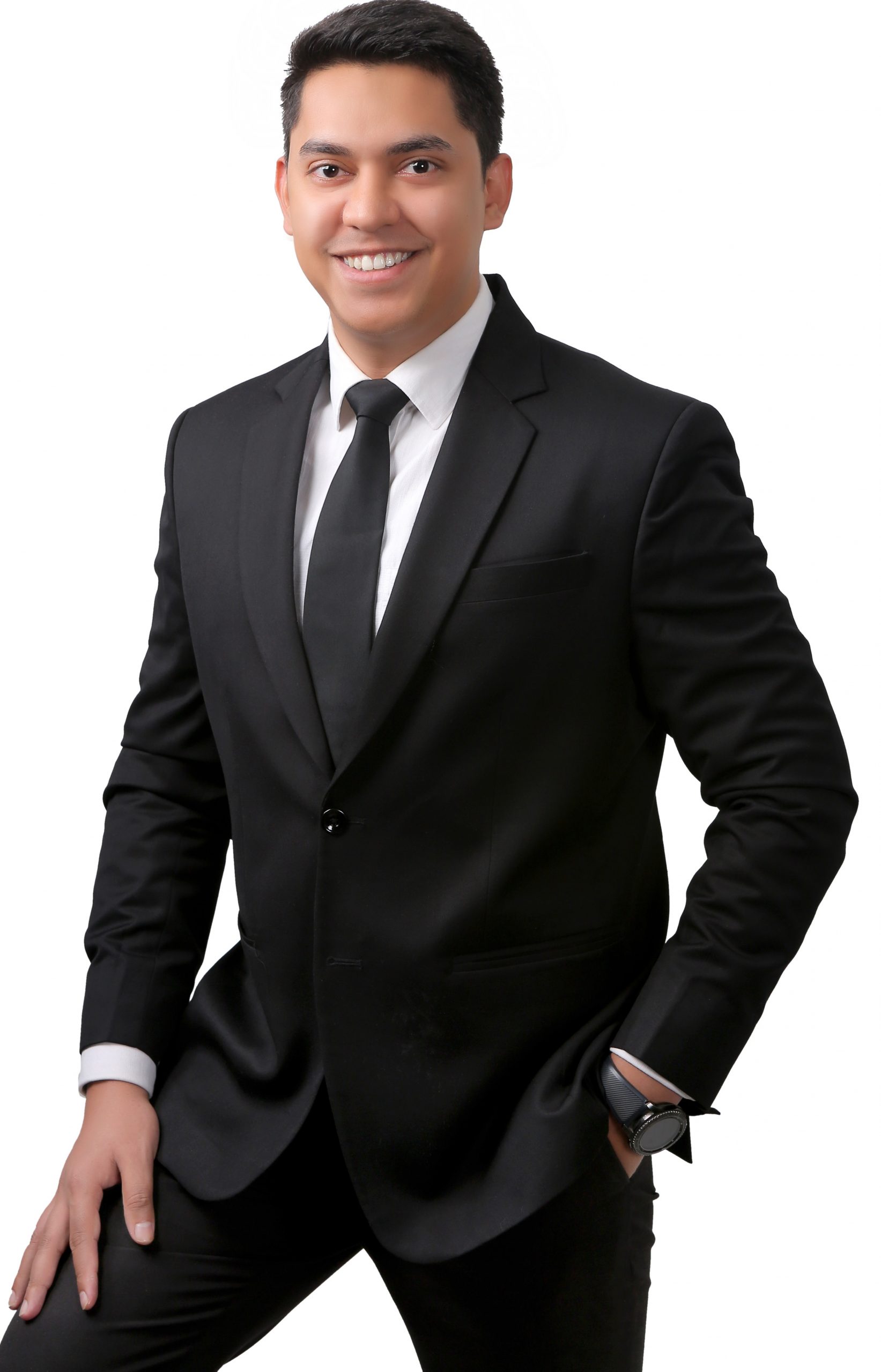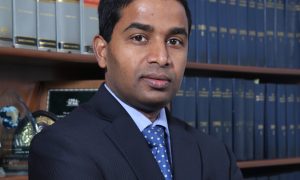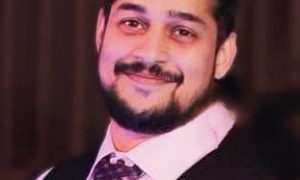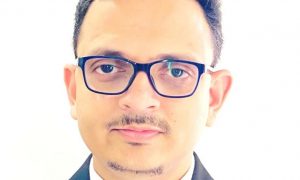This interview has been published by Priyanka Karwa and The SuperLawyer Team
Sir, to start this conversation, can you tell us about your journey and how you ended up becoming a corporate commercial lawyer with a focus on litigation, arbitration, and advisory work?
At the outset, I thank you for providing me the platform to express my thoughts and also a huge thank you to the readers for taking out the time to read this interview. Hope this will provide answers to any questions that they may have.

I am a first-generation lawyer who had no background, guidance or mentor in the legal field. Most of my family, including my father, were government officers working with different ministries and sectors. While growing up I would often see that despite having ample authority in their jobs, they did not have the power to go beyond their employment duties and change the system. This prompted me to chose a career that provided me independence, authority and the means to reform the system. Thus, my initial years in the career right after college were spent practising mostly in the NGT and High Court working primarily on Environmental, Writ, PIL’s and Civil matters. Further, to explore more areas of laws, I switched to Civil, property, consumer, family and some criminal matters. Whilst working on ground, I was exposed to ADR techniques like Mediation and Arbitration. I was immediately drawn towards the aforesaid inexpensive and more efficient methods of dispute resolution. However, I saw that there was a dearth of awareness, skills and resources. That time most of the lawyers and judges were still ill-equipped to deal with complex arbitration procedures and cases. This led me to pursue higher education from a foreign institution to learn more about the practice and procedures as applied around the world.
Upon my return after earning a Master’s degree, I began applying my skills and knowledge to the field and shifted the focus of my practice to commercial litigation and arbitration, which remains my core area and personally, my area of preference.
Thereafter, the advent of the new Insolvency Code and Bankruptcy Code, 2016 (“IBC) completely shifted the legal landscape. Initially, Arbitration replaced litigation as the primary method for dispute resolution but, with the provisions of moratorium, arbitrations were being stayed and kept aside and hence, it become a ‘trend’ to initiate proceedings in NCLT rather than invoking arbitration. Nonetheless, there were many coinciding points in the lifespan of a dispute, wherein insolvency, corporate and dispute resolution laws came face to face. This was the reason that more and more work started coming in from the corporate side as well. Further, as IBC was (and is) in its evolving stage, the joy of moulding and developing the law through my representation before the Tribunals lead to this becoming my main areas of practice.
Therefore, it would not be incorrect to say that it is was an organic process for me to become a corporate commercial litigation and arbitration lawyer.
You mentioned that your practice involves a significant multi-jurisdictional component. Could you elaborate on how you handle cases that involve appearances before the Courts of England, India, and International and Domestic Arbitral Tribunals? What are some of the challenges and opportunities in dealing with such diverse legal systems?
Yes, that is correct. I am presently based out of London and practicing both in India and London. The advancement of technology and the digitalization of the Court systems and hearings has been a catalyst to my practice being spread in different countries.
Initially, I was practising from New Delhi, my hometown and would physically go and appear in the jurisdiction where the case was filed or heard. During those times, the virtual hearings were rare and only allowed in exceptional circumstances to the concerned parties, like a witness being based abroad. Therefore, initially, my practice involved travelling to different states and cities in India along with international travel to the seat or venue of arbitration. However, after covid, almost all of the Courts in India and abroad switched to virtual hearings which provided me the flexibility and ease to appear remotely. Presently, I am appearing virtually in almost all of my cases in India (with the assistance of the local lawyers). On the other hand, I am physically appearing and attending my cases listed in the Courts here in England and Wales.
I would say the challenges and opportunities are two sides of the same coin as one can only get the opportunities if they can overcome these logistical and procedural challenges. When I expanded my practice and relocated to England, it required a lot more hours of work due to the time difference between the countries. I would often get up early morning as per Greenwich Mean Time (GMT) to appear before the Indian Courts which were 5:30 hours earlier (IST) and thereafter, begin my work here in England. Due to the difference in time, I also had to schedule my calls with clients and colleagues in a way that I could keep the two separate and this led to a situation where my work days turned unusually long.
Another challenge that I faced was the difference in practice and procedures between the two countries. It is a common misconception that as India has derived most of its laws from England, they’re mostly the same. Even though the broad concepts are largely similar, the practice in the two countries is very different. Therefore, getting acquainted with the difference in terminology, style of drafting and presenting the claim/defence and also, presentation of arguments before the court initially posed a great challenge. However, with time, this difference has now faded and made things relatively easier. Moreover, I now handle my India & UK assignments separately by allocating different days to each. This provides me ample time to prepare with ease for each assignment.
All things considered, maintaining two different practices requires diligent efforts, extensive work hours and efficient management. Moreover, it also demands you to be socially active. There is saying in our field, especially for litigation lawyers, “out of sight-out of mind”, and hence, it is imperative to maintain and build professional and personal contacts by attending social events like conferences, meetings and seminars.
How does being a dual-qualified lawyer enhance your practice? In what ways has it broadened your understanding of international law and cross-border transactions?
I would say this dual training and qualification provided me an edge over my peers and opened new avenues for me. While studying in India, we were mostly taught about our legal system and how the Courts in India dealt with cases historically and in the present times. However, we were not provided exposure to the functioning of the Courts in other international jurisdictions especially in countries like the USA or the UK who are the founders of some of the modern-day legal concepts and techniques.
The education I received during my masters, filled this knowledge-gap and exposed me to international practice areas. My brief time in the US gave me exposure to how the different jurisdictions in the US, from New York to Florida and California to Washington DC, dealt with the arbitration disputes. I was also part of the very first Mediation scrimmage organised by the American Bar Association and other developmental activities which further enhanced my inter-personal skills to handle disputes in a more informal and personal setting. Moreover, I became more familiar with the functioning of the Courts and Tribunals of some of the most pro-arbitration jurisdictions like Switzerland, Singapore, England and Paris.
The aforesaid exposure, education and knowledge has made me better equipped to advise and deal with international cases and client. Further, I learnt to keep myself abreast with the legal developments around the world that enabled me to come-up with better solutions and reasonably infer the outcomes of the cases.
As an avid writer, you contribute to international journals, blogs, and publishers. How has your passion for writing complemented your legal career? Are there any specific topics or issues that you enjoy writing about the most?
At the outset, I truly believe that legal writing is a necessary skill for our profession and not merely a complementing factor. Our profession requires deep understanding of the subjects. Whilst writing an article, the author has to research, read and understand the past, present and future usage and implications of that particular topic.
My passion for writing developed through my inquisitiveness to read about new topics and concepts. I believe I am still a student of law learning new things every day and therefore, whenever I come across a new concept which is still unknown to me, I am keen to research and read about it. Most of the articles I have written were either new to the world (like Singapore Mediation Convention) or new to me. Therefore, it would be apt to say that this passion increases my knowledge in the field and eventually helped me in the practice.
My topics of interest are mostly based on the new developments in the field of law. In today’s time when there is an abundance of resources and free access, I believe that the historic concepts already have numerous sources and publications. Therefore, my preference is writing about a relatively novel concept, case or practice so as to provide a fresh perspective to the world and contribute to the literary resources.
Could you share with us some of your most memorable or significant cases or achievements in your career so far? What were the key factors that contributed to those successes?
To be honest, all of my cases are personally significant for me as I am 100 % involved in all of my cases whether they become distinguished or not. But few of the cases stand out for me as these are mostly my ‘firsts’ or the cases that brought a change in the system.
Starting with my firsts, a PIL filed by me along with a colleague before the Delhi High Court to term the senior citizens as “co-morbidites” during the covid phase and thereby imposing greater obligations on the state to protect the senior citizens and children during the outbreak of corona virus. Another case that I want to highlight is another PIL filed before Delhi High Court (still pending) turned into a representation by the Court to the State Transport Department, Police and Policy makers. The Petition dealt sought creating a dedicated corridor on all main roads of Delhi providing unrestricted and free movement to all emergency services.
I would also like to mention one of the Arbitration Petitions which was decided by the Delhi High Court in our favour. We had opposed the unilateral appointment of an arbitrator by the opposite party. What made the case landmark was that not only the Court allowed our objection to the unilateral appointment, the Court while considering our objections regarding the invalidity of the arbitration agreement, quashed the proceedings in the same Petition.
The significant ones would involve one of the first cases in India wherein the NCLT, Kolkata had held that personal guarantor’s liability is co-extensive and insolvency process was initiated against the guarantors. There was also a rather unique case before the NCLT wherein I represented the respondent, a leading real estate company who had come face to face with the most renowned business families in India in lieu of an existing debt. Even though the debt amount was disputed, our clients decided to repay the amount during the subsistence of the Petition. The Petitioner disputed the acceptance and sought initiation of CIRP against our client company, however, despite an apparent default, the NCLT was compelled to decide the case in our favour due to the extinguishment of debt.
One of my recent cases that is regarded as landmark is a Writ Petition decided by the Punjab & Haryana High Court wherein the Petition was filed seeking to consolidate more than 100 criminal trials pending before my clients in different cities and towns in the two states. It was the first time ever that any High Court in the Country realising the infringement of the fundamental right to fair trial, allowed the transfer of more than 100 criminal trials before a single magistrate to hear all of these cases together.
With the rapid changes and advancements in the legal industry, what are some of the emerging trends or challenges that you see in your practice area? How do you stay updated and adapt to these changes to provide the best possible legal solutions to your clients?
One of the most prevalent developments and personally, my favourite, is India coming to the forefront as an emerging upcoming seat and place for Arbitration. India has come a long way in terms of its Arbitration practice. India was not regarded as an ideal place for arbitration due to some blatantly incorrect arbitration judgments and several refusal for enforcement of awards. However, India has now evidenced its pro-arbitration approach by taking steps in the right direction. From ease of business to establishment of International Arbitration Centres and facilities are all beneficial for India to emerge as a choice of seat for arbitration. Further, the ease of restriction for foreign law firms would also provide some respite to the international practitioners that weren’t earlier keen to set up their offices in India.
India being the fifth largest economy in the world, is now being viewed by the world as an upcoming player in the field of arbitration.
I stay abreast with the new developments by reading legal articles, publications and news. The legal field per se does not have many resources for reporting latest developments and therefore, I follow a handful of genuine journals and news services that keep me up to date. I also try and stay active in the professional circuit by attending major events and conferences. Often times, new concepts are discussed and presented in these events to gage audience’s reactions and that also provides a first mover advantage in terms of being familiar with new developments. But most importantly, the best legal solutions are often developed by discussing with colleagues and seniors in the field. It is really important to gain different perspectives before finalising a strategy and that is what I do. When there are complex issues, I seek additional advice and sometimes seek experiences of the lawyers who have been in similar situations to create creative and helpful solutions for clients.
Finally, looking back at your journey as a lawyer, what would be the one piece of advice or words of wisdom you would like to share with fresh graduates who are just starting their legal careers?
I do not consider myself to be a person who can give “words of wisdom” rather I’d be happier sharing my experiences. One mantra that I know definitively works in our field is “Consistency is the key”. I can say from experience, good or bad, happy or sad, if a person walks even one step forward that’s progress! So, somebody who is determined to succeed should not forget to keep walking and working as Rome was not built in a day and it was turtle who won the race and not the rabbit.
Get in touch with Ankit Sharma-
























